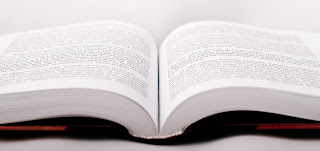What I love about studying cliodynamics under the patronage of Google is not finding, evaluating and applying meaning to data. The main struggle is actually to stop expanding on the chain of ideas.
That's how things have gone so far, at least. Until I started writing about this elephantine of a nation: Writing about Indonesia's state of literature brought me to a standstill.
- Cliodynamics of Indonesian Literature
AD
|
Major Event
|
Psycho Stage
|
17th - mid 20th Century
|
Dutch rule.
|
Adult
|
Mid 20th - Early 21st
|
Everything! From war, coups d'etat, massacre, crises, reformation, natural disasters, etc, you name it, Indonesians have done it.
|
Zift
|
21st Century (so far)
|
Recalibrate everything!
|
Infancy
|
My maternal ancestry lists veterans, politicians, royalties and witches among its ranks. The main reason why my family remembers this fact is in due thanks to the Dutch governance. If it weren't for Dutch education, Indonesians would not have moved on from the archaic lontar (palm leaf manuscripts). Okay so education came at the cost of a lot of nutmegs and the loss of a lot of our relatives to Christianity, but at least people read.
Then the second World War broke. Remember how war, as the dark patron of the arts, has the power to catalyze literature? It didn't happen in Indonesia mainly because Indonesia is too big.
For so many reasons, in less than 20 years since her independence, a tyrannical regime had to be established. That regime caused a general amnesia by butchering at least half a million of the the population, then brainwashed the rest of by censoring, detaining and silencing the Indonesian Vox Populi for the length of a whole generation.
For so many reasons, in less than 20 years since her independence, a tyrannical regime had to be established. That regime caused a general amnesia by butchering at least half a million of the the population, then brainwashed the rest of by censoring, detaining and silencing the Indonesian Vox Populi for the length of a whole generation.
The movement was justified as an effort to protect religion from Communism. Take a moment to associate freely.
- Size Matters
A few things. Indonesians aren't dumb. Unlike the entitled Saudis, Indonesians have every reason and mean to produce mean literature, win gold medals at science olympics, and run major corporations in their countries of origin. But they don't because, the social structure doesn't encourage it.
It's not that Indonesia is poor (far from it). It's only a matter of logistics: The larger is a country, the harder it is to control the distribution of resources. The harder to implement quality education upon all. The harder to maintain a standard for evaluation and reverse the widening inequality of income. You get my drift?
Compare to its population size, the Indonesians are not writing well enough. And how could they, if they don't read well enough? And how could they read well enough, if the writers themselves are still struggling with their basic and security needs?
The 30 years of illiterate silence systematically erased whatever memories and stories that the people might have learned from the past wars or occupatioons. for independence and Dutch maturity in Indonesia's literature.
Fortunately, like the rest of ASEAN agricultural nations, Indonesians are pious and mild-mannered enough to take things as they go. And, thanks for the steady stream of natural disasters, rural Indonesians are rarely so bored to be motivated to fulfill beyond their basic physiological and security needs. For a while, at least.
- Why should they read?
I'm writing this from an idyllic village. The land is good and yielding and the people are obedient and yielding to their crops. Whatever is their religion, it has not made them fanatical or argumentative, because religions here are congruent with the laws of nature.
The people's disagreements are petty, their pleasures simple, their days and nights are monotonous and repetitive. The educated classes, the ones who have traveled far for their education, their main work is to maintain this idyllic peace. To keep the farmers farming, the mothers feeding, the husbands caring.
This has always been the state of things in this village, for many generations past, through the fall and raise of governments and kingdoms, since the formation of the Ring of Fire.
Steadfastness too is a kind of Grace.


